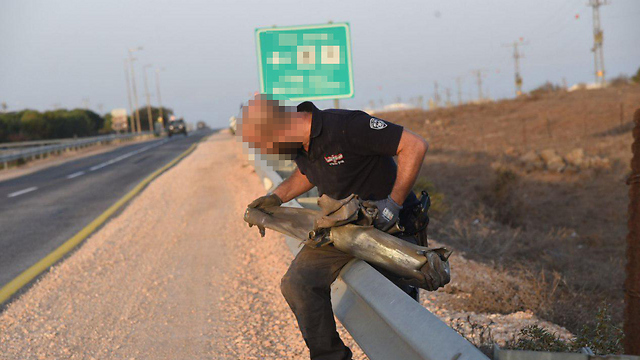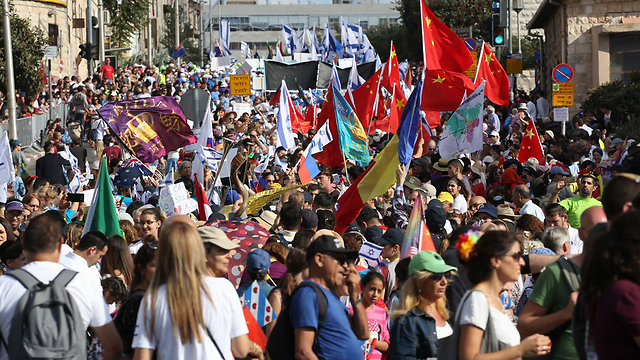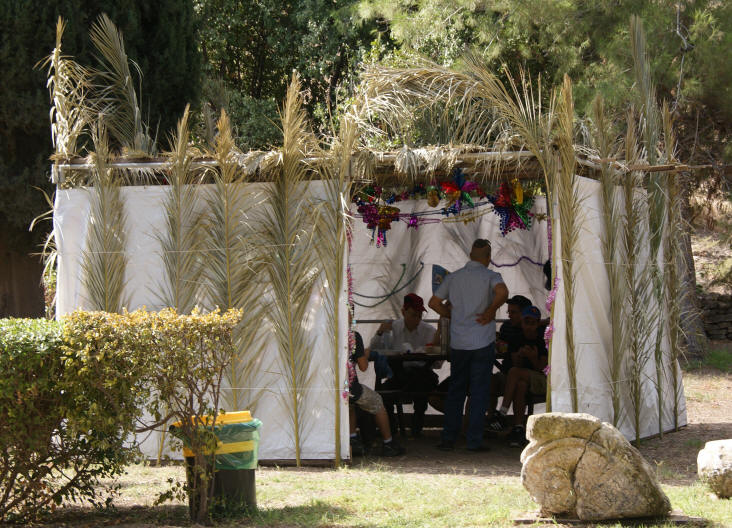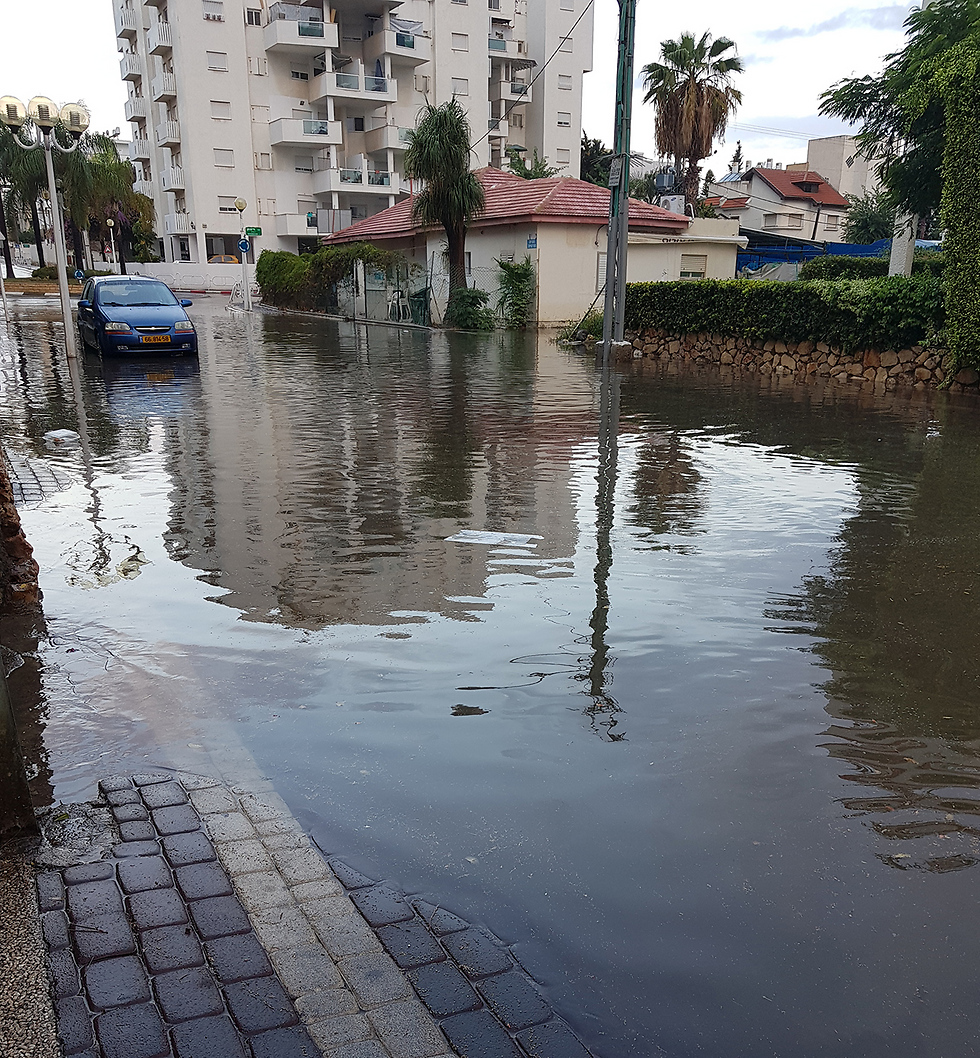ANZACs and the BATTLE for BEERSHEBA
Then David said to the Philistine, “You come to me with a sword, with a spear, and with a javelin. But I come to you in the name of the Lord of hosts, the God of the armies of Israel, whom you have defied.
I Samuel 17:45
"At a mile distance, their thousand hooves were stuttering thunder, coming at a rate that frightened a man, they were an awe-inspiring sight, galloping through the red haze, knee to knee and horse to horse, the dying sun glinting on bayonet points"
Ian Idreis of the Australian 4th Light Horse Brigade
As I traveled by bus into Jerusalem one day this week I was thrilled to see the main highway lined with the flags of New Zealand and Australia flying alongside those of Israel. What was the occasion, you might ask. The 31st of October marked the 100th year anniversary of the Battle of Beersheba, which took place during the First World War. This battle is little-known but was perhaps one of the most important and pivotal battles of all time. The defeat of the entrenched Turkish forces at Beersheva by the Australian and New Zealand Army Corps (ANZAC) broke the resolve of the Turkish Army and opened the door for the capture of Jerusalem and ultimately the establishment of the State of Israel, thus fulfilling Biblical prophecy and paving the way for what will be the final redemption of the world. It was also the last great cavalry charge in history.
| Map of the Battle for Beersheba http://www.lighthorse.org.au/images-content/famous-battles/ww1/bsheba.jpg |
The Allied Egyptian Expeditionary Force, made up of British and ANZAC forces, had failed on two attempts to break through the Turkish-German line between Gaza and Beersheba. Commander General Allenby devised a plan to take Beersheba. First, erroneous information was deliberately leaked leading the Turks and Germans to believe the Allies would concentrate their attack on Gaza. Then, the main EEF forces surrounded Beersheba from the east and the south.
To the north-east of Beersheva lay a hill, Tel es Saba, which overlooked and protected the Turkish front line. The job of capturing this hill and silencing its artillery guns was given to the New Zealand Mounted Rifles. On the 31st of October 1917 the NZMR fought a fierce, 6-hour-long, uphill battle against the Turkish forces and, against the odds, captured the Tel. Although often overlooked, this operation was pivotal, and had the New Zealanders not taken this hill and its guns, the Australian cavalry charge which broke through the Turkish lines at Beersheba could never have taken place. Eight New Zealanders perished in this attack and 26 were wounded. *
By the time the NZMF had taken the hill on that fateful day, night was falling. The Allied horses had not had water for 48 hours and they would soon begin to die from thirst. The wells of Beersheva were defended by a Turkish force of some 4,000 fresh, well-armed and entrenched soldiers with machine guns and artillery, supported by the Germans. All seemed lost, but then the commander of the Australian forces, Brigadier General William Grant, made the audacious suggestion that his mounted infantry, the 4th Light Horse Brigade, could charge the lines and break through. It sounded crazy, but there were no other options and orders were given for the charge.
The 4th Australian Light Horse Brigade was not a cavalry unit but mounted infantry. Normally they would ride to the site of battle, dismount and then fight on foot. Consequently, the Turkish forces had been told to hold their fire until the Australians dismounted, but this time they rode their horses at full gallop directly into the line of fire, jumping over the trenches, surprising the Turks, who did not have time to respond. The Turkish line was broken, the soldiers were thrown into confusion and many fled. The rest of the Allied forces were then able to enter and capture Beersheba. Losing this battle broke the resolve of the Turkish forces, many of whom scattered and fled, opening the door for the capture of Jerusalem, and later the complete liberation of the Holy Land from the Turkish Empire.
To the north-east of Beersheva lay a hill, Tel es Saba, which overlooked and protected the Turkish front line. The job of capturing this hill and silencing its artillery guns was given to the New Zealand Mounted Rifles. On the 31st of October 1917 the NZMR fought a fierce, 6-hour-long, uphill battle against the Turkish forces and, against the odds, captured the Tel. Although often overlooked, this operation was pivotal, and had the New Zealanders not taken this hill and its guns, the Australian cavalry charge which broke through the Turkish lines at Beersheba could never have taken place. Eight New Zealanders perished in this attack and 26 were wounded. *
By the time the NZMF had taken the hill on that fateful day, night was falling. The Allied horses had not had water for 48 hours and they would soon begin to die from thirst. The wells of Beersheva were defended by a Turkish force of some 4,000 fresh, well-armed and entrenched soldiers with machine guns and artillery, supported by the Germans. All seemed lost, but then the commander of the Australian forces, Brigadier General William Grant, made the audacious suggestion that his mounted infantry, the 4th Light Horse Brigade, could charge the lines and break through. It sounded crazy, but there were no other options and orders were given for the charge.
The 4th Australian Light Horse Brigade was not a cavalry unit but mounted infantry. Normally they would ride to the site of battle, dismount and then fight on foot. Consequently, the Turkish forces had been told to hold their fire until the Australians dismounted, but this time they rode their horses at full gallop directly into the line of fire, jumping over the trenches, surprising the Turks, who did not have time to respond. The Turkish line was broken, the soldiers were thrown into confusion and many fled. The rest of the Allied forces were then able to enter and capture Beersheba. Losing this battle broke the resolve of the Turkish forces, many of whom scattered and fled, opening the door for the capture of Jerusalem, and later the complete liberation of the Holy Land from the Turkish Empire.
One might wonder how just 800 exhausted, thirsty horsemen, carrying only light rifles and bayonets, were able to conquer a well-fed and watered force of 4,000 Turks, well armed and dug in. I do not want to belittle the courage of the ANZAC forces in any way, but I believe it took more than just raw courage to pull off this amazing feat. I am reminded, in fact, of David and Goliath! If we go back in history as recorded in the Bible we will see again and again how the armies of Israel faced impossible odds but overcame their enemies with the help of their God, who supernaturally fights for Israel. On one such instance, when the army of the King of Aram (Syria) surrounded the city of Dotham in which Elisha was staying, Elisha and the people of Dotham were vastly outnumbered and out-armed. Elisha's servant was dismayed, but Elisha knew that the army of the LORD was with him, and he asked the LORD to open the eyes of his servant so that he too could see the Lord's army. The Lord's army blinded the eyes of the soldiers of Aram and led them into the city of Samaria, some 10 km away, where they were captured, feasted and later returned to their master (II Kings 6).
When the servant of the man of God got up and went out early the next morning, an army with horses and chariots had surrounded the city. “Oh no, my lord! What shall we do?” the servant asked. “Don’t be afraid,” the prophet answered. “Those who are with us are more than those who are with them.”And Elisha prayed, “Open his eyes, Lord, so that he may see.” Then the Lord opened the servant’s eyes, and he looked and saw the hills full of horses and chariots of fire all around Elisha.
II Kings 6: 17-18
In more recent times we have also repeatedly seen the supernatural intervention of God on behalf of Israel. From the beginning of the modern State of Israel we have fought many wars, always vastly outnumbered, but we have prevailed and flourished, not by our own strength but by the power and grace of God. There are too many examples to attempt to outline them all, but for example, in the most recent Gaza conflict of 2014, one of the Hamas fighters, when asked why they couldn’t aim their rockets more effectively, was reported to complain: ‘We do aim them, but their God changes their path in mid-air’ (2). Whether or not this unconfirmed report is true, one clear incident was reported widely in the Israeli media. This is what the Commander of the Iron Dome (the anti-missile missile batteries) unit protecting Tel Aviv reported:
This last week, commemorations were held in Beersheba to honor the ANZAC forces of the Battle of Beersheva. Some 100 Australian horsemen and women reenacted the charge. A wreath-laying ceremony was held at the Commonwealth War Graves Cemetary in Beersheba attended by Israel's Prime Minister, Benyamin Netanyahu, the Australian Prime Minister, Malcolm Turnbull and the New Zealand Governor-General, Dame Patsy Redding, and other dignitaries and members of the public. The ceremony was broadcast live on Arutz Sheva, an Israeli online TV station. You can see it on http://www.israelnationalnews.com/News/News.aspx/237475
"A missile was fired from Gaza. Iron Dome precisely calculated [its trajectory]. We know where these missiles are going to land down to a radius of 200 meters. This particular missile was going to hit either the Azrieli Towers, the Kirya (Israel’s equivalent of the Pentagon) or [a central Tel Aviv railway station]. Hundreds could have died.
"We fired the first [interceptor]. It missed. Second [interceptor]. It missed. This is very rare. I was in shock. At this point we had just four seconds until the missile lands. We had already notified emergency services to converge on the target location and had warned of a mass-casualty incident.
"Suddenly, Iron Dome (which calculates wind speeds, among other things) shows a major wind coming from the east, a strong wind that…sends the missile into the sea. We were all stunned. I stood up and shouted, ‘There is a God!’
“I witnessed this miracle with my own eyes. It was not told or reported to me. I saw the hand of God send that missile into the sea.” (3)
There are myriads of similar stories that come out of Israel's wars. The God of Israel is still fighting on our behalf.
I believe that the Anzac victory at Beersheba was orchestrated by God as He worked out His plan to re-establish the Nation of Israel in its own Land. Even as the battle for Beersheba was taking place, the British War Cabinet was in conference drawing up the Balfour Declaration, which was signed just three days later. The Balfour Declaration established the principle of the founding of a Jewish State, which we now know as Israel. The Battle of Beersheba and the subsequent conquest of the Holy Land made that a real possibility.
There are myriads of similar stories that come out of Israel's wars. The God of Israel is still fighting on our behalf.
I believe that the Anzac victory at Beersheba was orchestrated by God as He worked out His plan to re-establish the Nation of Israel in its own Land. Even as the battle for Beersheba was taking place, the British War Cabinet was in conference drawing up the Balfour Declaration, which was signed just three days later. The Balfour Declaration established the principle of the founding of a Jewish State, which we now know as Israel. The Battle of Beersheba and the subsequent conquest of the Holy Land made that a real possibility.
| http://www.theaustralian.com.au/national-affairs/defence/beersheba-centenary-in-the-heat-and-dust-a-charge-is-relived/news-story/671f0dcdfaad3b29ee866e8fe58d6481 |
| http://www.israelnationalnews.com/News/News.aspx/237475 |
The headlines in the Maariv newspaper this evening reads:
"Mounting Tensions in Syria and Gaza Throw Israel Into a New State of Emergency" (4). On Monday this last week the Israeli Defense Forces, using newly developed technology, blew up an Islamic Jihad tunnel which passed into Israeli territory under the border fence from Gaza. At least 14 Palestinian militants were killed including senior commanders of the Islamic Jihad and one Hamas commander. This has ratcheted up the tensions along the Gaza border to their highest level since the 2014 Operation Protective Edge. This morning the Code Red sirens sounded in the south, but it was a false alarm possibly set off by small-arms spillover fire from the Sinai.
In the north, tensions are also continuing to rise. On Wednesday the Israeli Air Force blew up a Hezbollah weapons factory in central Syrian and Syrian anti-aircraft missiles were fired at the planes as they flew over Lebanon. This represents a change of policy by Syria's President Assad as he is now growing more confident as he reasserts power over the rebel forces, with the backing of Iran and Russia. On Friday Syrian forces took the last major ISIS stronghold, the city of Deir el Zur. Later the same day the Druse village of Khadar came under attack from Al-Qaida affiliate group, Nusra Front. At least 9 people in the village died as a result of a car bomb and the detachment of the Syrian army fled the village. the Nusra Front then closed in on the village and began to fire on it. Druze citizens from Majdal Shams, only 3km away in the Israeli Golan, gathered at the border out of concern for residents of Khadar, many of whom are family members. The Israeli Druze broke through the border fence into Syria but were returned by the Israeli military. Following discussions with the Druze leaders, Israel has made a commitment to defend this village from any further attack (6).
In Iran today, a new long-range missile was unveiled in celebrations involving the burning of posters of the US President, Donald Trump and amid threats to annihilate Israel. Also today the Prime Minister of Lebanon, Saad Hariri, resigned following a failed assassination attempt . In his resignation speech, Hariri accused Iran and its Lebanese ally, Hezbollah, of holding Lebanon hostage and destabilizing the Arab region (7).
All this represents a rapid destabilization of the situation in the entire Middle East and in this tinder dry environment it would be very easy to tip the scales. War could break out at any moment on a number of fronts. Wherever it starts it would soon escalate to a region-wide conflict with the main aim of annihilating Israel first and the USA second. Israel is in greater danger than ever before, surrounded with millions of enemies sworn to her destruction, and all heavily armed with the latest of weapons. There is no way that Israel could win such a war, except that God would fight on her behalf. Once again we are in a David and Goliath situation, and like David we must not allow ourselves to be dismayed, but rather trust wholeheartedly in our God.
Please pray that we as a nation will seek God at this hour and not trust only in our army or our human strength. Pray too that the residents of this land will neither live in an unhealthy denial of the threat before us, nor will be crippled by fear, but rather that we will all draw near to God in repentance and faith.
( I apologize for the inconsistencies in formatting. It is the Google Blog software doing it - not me!!)
* Two weeks later 800 NZMR soldiers fought and overcame 1500 Turks at Ayun Kara (now Rishon le Zion). Some 50 NZ soldiers died in that attack.
(1) https://www.newsroom.co.nz/2017/10/29/56759/nzs-role-in-historys-last-great-cavalry-charge
(2) http://www.lighthorse.org.au/resources/military-stories-ww1/the-taking-of-tel-el-saba-or-the-role-the-new-zealanders-played-in-the-taking-of-beersheba
http://www.skynews.com.au/news/top-stories/2017/10/31/pm-marks-centenary-of-beersheba-in-israel.html
"The Battle of Beersheva" - the movie on YouTube https://www.youtube.com/watch?v=NgHC25ubiQU
Video reconstruction http://www.nationalgeographic.com.au/videos/australian-war-horse/battle-of-beersheba-4186.aspx
http://www.israelnationalnews.com/News/News.aspx/237475 broadcast of ceremony
https://www.ynetnews.com/articles/0,7340,L-5036619,00.html
https://www.ynetnews.com/articles/0,7340,L-5036758,00.html
http://www.skynews.com.au/news/top-stories/2017/10/31/pm-marks-centenary-of-beersheba-in-israel.html
https://www.ynetnews.com/articles/0,7340,L-5034970,00.html
(3) http://m.news24.com/news24/MyNews24/Israel-Miracle-Gaza-Strip-Hamas-Complain-Their-God-Changes-The-Paths-Of-Our-Rockets-In-Mid-Air-20140722
http://www.israeltoday.co.il/NewsItem/tabid/178/nid/24811/Default.aspx
(4) https://www.haaretz.com/israel-news/1.820826
https://www.haaretz.com/israel-news/1.820068
(5) http://www.jerusalemonline.com/news/politics-and-military/military/idf-red-alert-siren-in-eshkol-false-alarm-32187
https://www.ynetnews.com/articles/0,7340,L-5036250,00.html
https://www.ynetnews.com/articles/0,7340,L-5037273,00.html
https://www.ynetnews.com/articles/0,7340,L-5036135,00.html
https://www.ynetnews.com/articles/0,7340,L-5036250,00.html
https://www.ynetnews.com/articles/0,7340,L-5037273,00.html
https://www.ynetnews.com/articles/0,7340,L-5036135,00.html
(6) https://www.haaretz.com/middle-east-news/1.820989
(7) http://www.foxnews.com/world/2017/11/04/ap-explains-what-is-behind-lebanese-pms-resignation.html






